#ruby hamad
Text
“White women share the same racial characteristics as white men and so are more easily able to transcend gender-based oppression. Their proximity to white men gives them, as LORDE pointed out, access to rewards for identifying with patriarchy when it suits them.”
Ruby Hamad, White Tears Brown Scars: How White Feminism Betrays Women of Colour
#feminism#white tears/brownscars: how white feminism betrays women of color#white feminism#white women#feminist#white men#ruby hamad#book quote#quotes
20 notes
·
View notes
Text
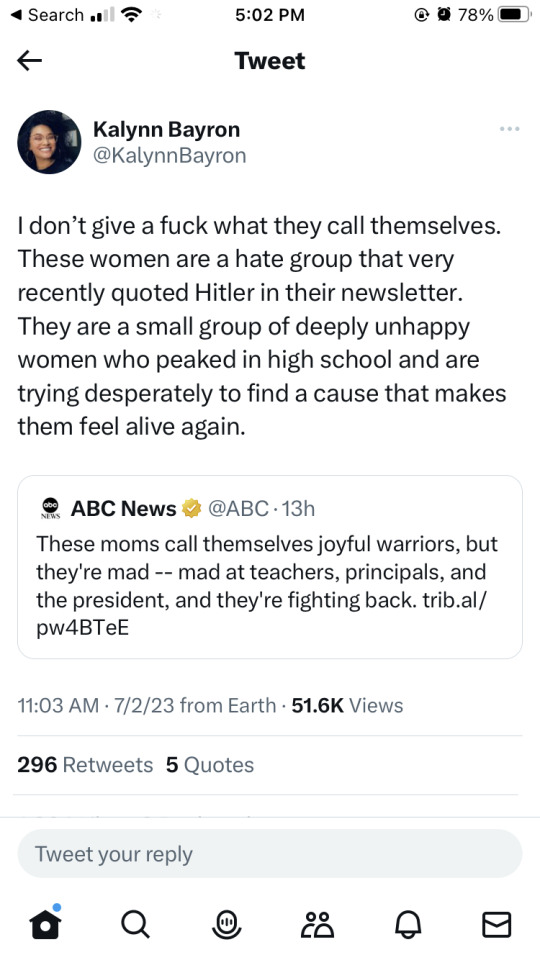
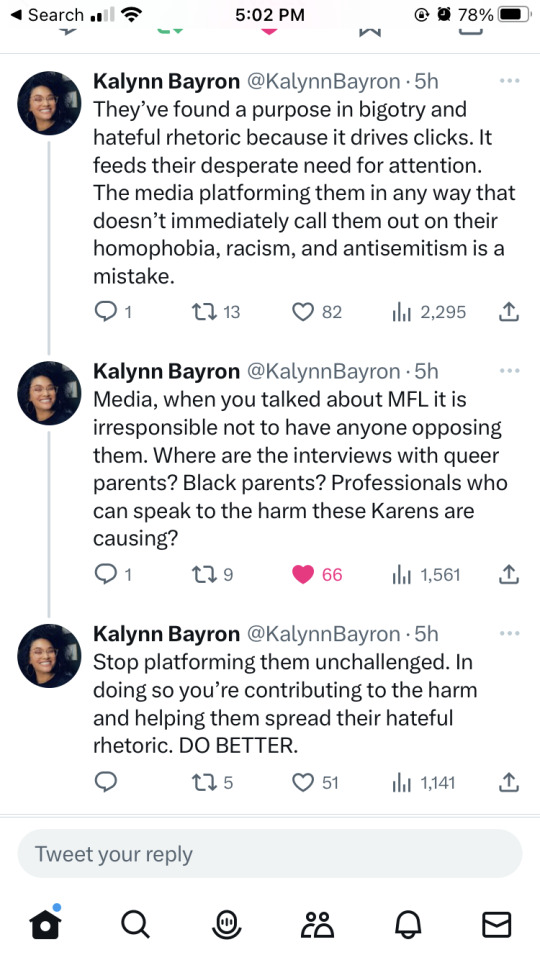
I’m still reading The Trouble With White Women and I’m remembering White Tears/Brown Scars by Ruby Hamad and I’ve gotta say this song and dance of “good” Christian white mothers believing they know what’s best for millions of strangers and taking it upon themselves to “save” children by oppressing others never ends well.
“The white women maternalists of old leveraged their roles as white mothers even though many of them were single and child-free. They reasoned that because they were women, they were much better placed than white men to understand and respond to the needs of Indigenous women and their children. This professed valorization of motherhood did not extend to Indigenous mothers, whom they disparaged as sexually immoral and unfit for motherhood. If white women were the only true women, then by the same token white mothers were the only true mothers. They saw their role not as depriving Indigenous children of their families but as “rescuing” and “saving” them from their uncivilized parents.”
-Ruby Hamad, White Tears/Brown Scars
#book banning#book bans#homophobia#white nationalism#racism#white feminism#white tears/brown scars#Ruby Hamad
21 notes
·
View notes
Text
The crimes of white supremacy have not gone unrecorded. They are etched into the bodies of brown and black people the world over. Our scars, past and present, physical and emotional, bear witness to the violence white men and women insisted they were not inflicting. White society marked the bodies of women of colour as a receptacle for its sins so that it could claim innocence for itself and, as the chosen symbol of the innocent perfection of whiteness, the white damsel with her tears of distress functions as both denial of and absolution for this violence.
Ruby Hamad, White Tears, Brown Scars: How White Feminism Betrays Women of Color (2019, 56)
2 notes
·
View notes
Text
Ruby Hamad

Ruby Hamad femminista, accademica e giornalista, racconta forme insidiose di discriminazione e altre manifestazioni quotidiane di razzismo interiorizzato.
È l’autrice di How White Women use Strategic Tears to Silence Women of Colour, nato dall’omonimo articolo del 2018, pubblicato per The Guardian Australia, che in italiano è stato tradotto col titolo Lacrime bianche / ferite scure. Femminismo e supremazia bianca. Un punto di riferimento globale per le discussioni su femminismo bianco e razzismo.
Nata in Libano e cresciuta a Sidney, in Australia, ha studiato sceneggiatura e regia cinematografica al Victorian College of the Arts, si è laureata in economia politica presso l’Università di Sydney e conseguito un master in giornalismo e pratica dei media presso l’Università di Sydney. Insegna storia e scienze sociali presso l’Università di Western Sydney.
Ha scritto articoli su diverse importanti riviste internazionali e tenuto il discorso di apertura della Giornata internazionale della donna 2017 e Feminist Intersection – In Conversation (con Celeste Liddle) per il Queen Victoria Women’s Centre, e l’hosting di panel al Melbourne Writers Festival e al Newcastle Writers Festival.
Redattrice per la pubblicazione femminista progressista The Scavenger, ha prodotto una serie di saggi sul significato culturale e politico del cibo e creato una serie su persone affette da disturbi mentali che indaga il mito che ha contribuito a plasmare l’opinione pubblica sullo stigma della malattia mentale.
Il suo primo libro, How White Women use Strategic Tears to Silence Women of Colour, definito “Miglior libro del 2020” da Cosmopolitan, Harper’s Bazaar, Kirkus Reviews e Publishers Weekly, è una condanna bruciante e ad ampio raggio della ‘femminilità bianca strategica’ e della ‘svalutazione storica delle donne di colore’ nella cultura occidentale.
Attraverso testimonianze, un’accurata ricostruzione storica, la sua esperienza personale e il ricorso alla cultura pop del cinema e delle serie TV, ha scritto un aperto atto di accusa al femminismo bianco liberale incolpato di non voler fare i conti con il proprio passato coloniale in cui le donne hanno esercitato – seppur da subalterne rispetto agli uomini – un potere e un ruolo fondamentale nel fissare gli standard dell’umanità nel suo complesso, incarnati nell’uomo bianco, ma anche nelle donne bianche. Non guardare alla storia, significa continuare a esercitare e perpetuare quel potere e pensare al razzismo solo come a un comportamento individuale e non come a un elemento fondamentale della costruzione binaria della identità femminile in cui alle donne bianche è stata riservata la parte di “damigella in pericolo” mentre alle nere la parte selvaggia e in definitiva subumana.
Dalla schiavitù al linciaggio e all’allontanamento forzato di bambini indigeni, le donne bianche sono state complici degli uomini bianchi nel razzismo e nella violenza, con il pretesto di proteggere la femminilità bianca. L’autrice esamina come questa eredità di secoli di violenza razziale e colonialismo da parte dei bianchi si manifesti ancora oggi nella vita di donne nere, asiatiche, latine, indiane, musulmane, arabe e indigene di tutto il mondo.
C’è da specificare che quando parla di “donne bianche” e di “donne nere” i termini non sono descrittivi ma politici. Non differenzia per colore della pelle ma si riferisce a coloro che beneficiano della bianchezza intesa come privilegio razziale. Quando parla di nero o marrone intende coloro che ne sono escluse in vari gradi secondo un confine in continuo movimento e di volta in volta rideterminato dalla colonialità globale in cui la razza (intesa come imposizione sociale) è il criterio fondamentale per la distribuzione della popolazione mondiale secondo ranghi, luoghi e ruoli nella struttura sociale e del potere.
0 notes
Text
May Reads
Jar of Hearts by Jennifer Hillier
Man Possessed by Haley Tyler
White Tears/Brown Scars by Ruby Hamad
the 2000s made me gay: essays on pop culture by Grace Perry
Girl in Pieces by Kathleen Glasgow
#books#Jennifer hillier#thrillers#haley Tyler#romance#man possessed#booklr#nonfiction#nonfiction books#ruby hamad#grace perry#the 2000s made me gay#kathleen glasgow
1 note
·
View note
Text
Getting pretty sick of frequently seeing women who are highly educated arguing that “Umm actually prostitution allows women financial and social independence and men hate it because it makes women so powerful and less dependent on men!!” with no citations just vibes. And I get pretty sick of seeing it from so called intersectional feminists who write whole essays and books about how white men objectify and exploit women of colour specifically by forcing them into prositution or culturally casting woc into objectifying archetypes only to argue that “Well prostitution and sexualisation itself isn’t the problem, they’re completely legitimate ways of being, it’s assuming that that’s the only ways a woman can be or demonising a completely legitimate profession.” It’s embarassing and harmful and I can’t believe how many feminists are buying into it.
468 notes
·
View notes
Text

Flight transfer @ Doha
#ruby spears megaman#protoman#megaman#roll#doha#hamad international airport#plane transfer lounge#lampbear#qatar
7 notes
·
View notes
Text
the woc experience is not being able to relate to the ‘female characters are just more interesting’ feeling bc you know most of those characters do not look like you and the ones that do are either the ignored sidekick or a mess of racist stereotypes <3
#don't mind me lol i'm reading white tears brown scars by ruby hamad and it is.....putting so much into perspective lol#i've never been able to identify w the way people often stan female characters bc they just.....don't look like me lol#and the ones that are woc are often portrayed terribly and make me sad so like. lmfao#so often progress for white women comes at the expense of woc and i just.....hate it#this isn't to say there aren't some female characters i feel wild about but i've never been able to relate to people who only feel that way#neha rambles
11 notes
·
View notes
Text
Books Read in March
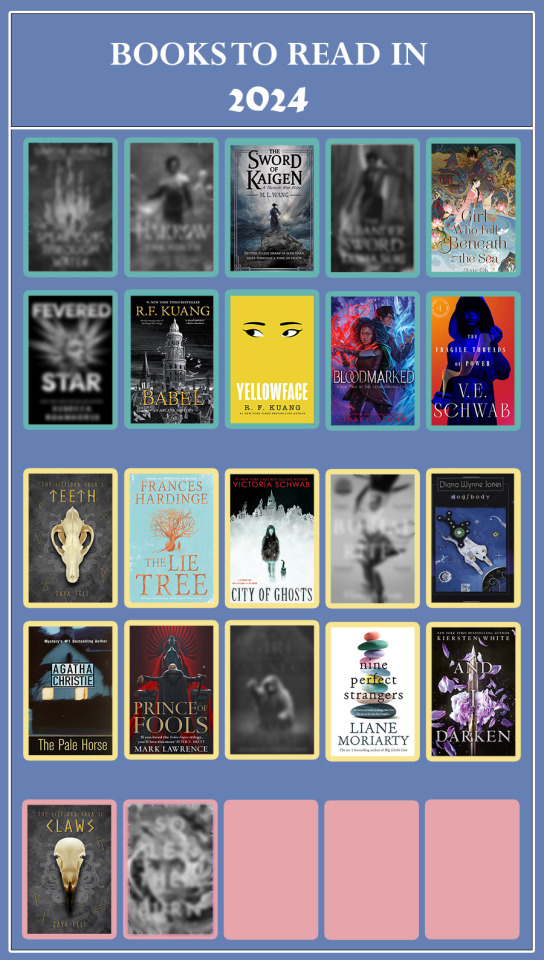
I was on fire in March and read 7 books, plus I finished listening to "I'm Glad My Mom Died" by Jennette McCurdy. Possibly because the rest of the month was pretty meh for me 😒
1. "Nine Perfect Strangers" by Liane Moriarty
2. "The Sword of Kaigen" by M.L. Wang
3. "Dogsbody" by Diana Wynne Jones
4. "Yellowface" by R. F. Kuang
5. "And I Darken" by Kiersten White
6. "The Lie Tree" by Frances Hardinge
7. "The Girl Who Fell Beneath the Sea" by Axie Oh
Some of these were a little bit less than I though they would be but overall no big disappointments so far this year.
I'm excited to see what it's next. I also started another audiobook "White Tears/Brown Scars: How White Feminism Betrays Women of Color" by Ruby Hamad and narrated by Mozhan Marnò.
#book#books#march#bookish#reading#Nine Perfect Strangers Liane Moriarty#The Sword of Kaigen M.L. Wang#Dogsbody Diana Wynne Jones#Yellowface R.F. Kuang#And I Darken Kiersten White#The Lie Tree Frances Hardinge#The Girl Who Fell Beneath the Sea Axie Oh#White Tears/Brown Scars: How White Feminism Betrays Women of Color Ruby Hamad Mozhan Marnò
0 notes
Text

Palestinian women in Gaza have no access to hygiene necessities to accommodate their periods, facing critical conditions that can lead to life risking infections and being forced to use scraps of cloth. Pregnant women in Gaza undergo C-sections with no anesthesia. And a rise in stress-induced miscarriages, stillbirths and premature births.
Sudanese women are being r*ped and are undergoing extreme cases of sexual violence at this moment by the RSF and the ongoing war
Displaced women in Congo are being constantly sexually assaulted and r*ped, a violence that we ALL indirectly contribute to it.
BUT we are supposed to feel sad and enraged bc the crisis at this moment is Margot Robbie not getting an Oscar and Lana Del Rey didn't get a Grammy and that is a sad thing for women's solidarity everywhere, criticizing Taylor Swift is misogyny and calling out consumerism feeding on girlhood and unnecessary overconsumption is women hating on women. White feminism (which does not mean necessary any feminist who is white as Ruby Hamad said) refers to feminists who prioritise the concerns of a specific elit of women, we will centre the whole experience on a specific elit of women, we will make you believe that there is no space to criticize other women, and if there is it is a hatred and petty space to have, in a world of extreme distortions and dichotomy, its extreme misogyny to criticize Staley cups while your sisters are dying in forgotten lands :)
293 notes
·
View notes
Text
“Those tears may well be genuine, but that does not make them innocent and harmless- the opposite in fact.”
Ruby Hamad, White Tears/Brown Scars: How White Feminism Betrays Women of Color
#white tears/brownscars: how white feminism betrays women of color#ruby hamad#white feminism#white women#feminism#feminist#quotes#book quote
5 notes
·
View notes
Text
“The existence of a binary means that one pole in the structure is almost always going to dominate. It is better to be a man than it is to be a woman, and if one must be a woman then it is far better to be a virgin than a whore. It is better to be from the West than the East and white is better than black, but if you can’t be white then it is better to be as close to white as you can.
-Ruby Hamad, White Tears/Brown Scars
13 notes
·
View notes
Text
Feminist Non-Fiction Recs
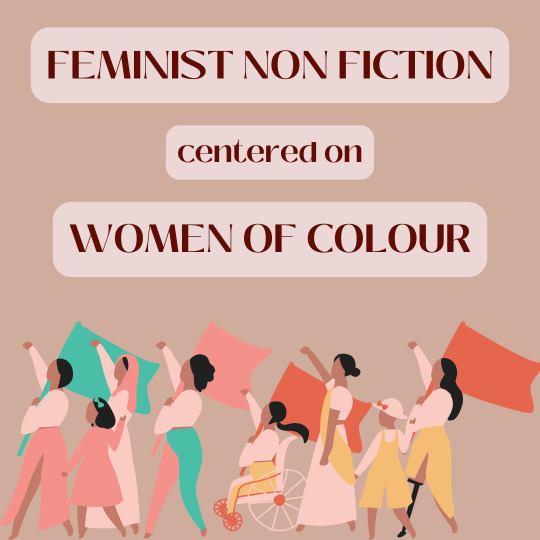
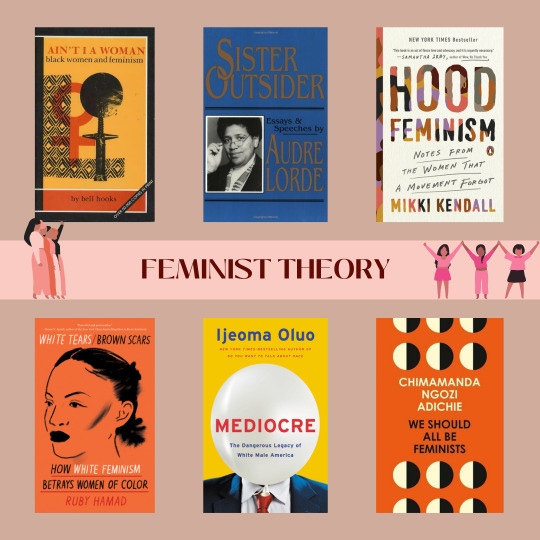


Because feminism isn't only about your own voice and your own rights, but about the liberation of all women, it's important to uplift the voices of women who are rarely heard. To honour this international day of Women's Rights, here are some recommendations for non-fiction feminist theory books centered on women of colour.
Please note that this is a non-exhaustive list, and that some very important works might not figure on it. Take it as inspiration, not as a binding list of works to have read, and remember that this is only the surface of women of colour's writings on feminism.
all of bell hooks' books, but I would recommend "Ain't I a Woman: Black Women and Feminism" to start with intersectional feminism
There Is No Hierarchy of Oppression; by Audre Lorde
Sister Outsider; by Audre Lorde (all of Audre Lorde, actually)
Hood Feminism; by Mikki Kendall
White Tears, Brown Scars; by Ruby Hamad
Mediocre; Ijeoma Oluo
We Should All Be Feminists; by Chimamanda Ngozi Adichie
This Bridge Called My Back; an anthology edited by Cherríe Moraga and Gloria E. Anzaldúa
Bad Feminist; by Roxane Gay
I Am Malala; by Malala Yousafzai
Black Feminist Thought: Knowledge, Consciousness, and the Politics of Empowerment; by Patricia Hill Collins
Arab & Arab American Feminisms: Gender, Violence, & Belonging; an anthology edited by Rabab Abduhaldi, Evelyn Alsultany and Nadine Naber
Making Space for Indigenous Feminism; an anthology edited by Joyce Green
Beyond Veiled Clichés: The Real Lives of Arab Women; by Amal Awad
The Trouble with White Women: A Counterhistory of Feminism; by Kyla Schuller
A Decolonial Feminism; Françoise Vergès
Eloquent Rage: A Black Feminist Discovers Her Superpower; by Brittney Cooper
Women, Race, & Class; by Angela Y. Davis
These books really only scrape the surface of an intersectional approach of feminism focused on race, and if you want to discover more works, I would recommend looking at intersectional feminism and decolonial feminism. Also, if you're not a native English speaker or if you speak fluently multiple languages, I recommend looking for feminist books originally written in other languages that may not have been translated to English, as they offer a perspective that is not so American-centered, which I feel is the case in too much of today's feminism.
#international women's day#feminist books#feminist theory#intersectional feminism#decolonial feminism#women of color#non fiction books#book recs#book recommendations
65 notes
·
View notes
Text

this is probably one of the best ways of wording it i've ever seen (source: pg. 258 of White Tears/Brown Scars: How White Feminism Betrays Women of Color by Ruby Hamad)
22 notes
·
View notes
Note
Hello. This might be a dumb question but like do you have any sources that Critique radical feminism? I’m mainly asking cause my feminism professor is praising rad feminism and I sorta feel uncomfortable as a trans masc person. and like I sorta want to talk about it with the prof. If not that’s a-ok. Anyways I hope you have a nice day.
https://jacobin.com/2017/07/radical-feminism-second-wave-class/
This is an article by Erica West that has a good overview of the history of radical feminism and its pitfalls, written from the point of view of a socialist feminist, to show racism is not the only problem with radical feminism.
The original intersectional feminist essay by Kimberlé Crenshaw is a great read too: “Demarginalizing the Intersection of Race and Sex: A Black Feminist Critique of Antidiscrimination Doctrine, Feminist Theory and Antiracist Politics”.
I also recommend “White Tears/Black Scars” by Ruby Hamad.
19 notes
·
View notes
Text
It is crucial to understand what we are talking about when we talk about "white tears" The kind of distress we are analyzing may well feel genuine, but it is neither legitimate nor innocent. Rather than denoting weakness, it signals power. [...] The catalyst need not be explicitly about race: the act of being challenged or politely disagreed with or, heaven forbid, "called out" by a woman of color about almost anything at all is enough to raise the defense and trigger a reaction based not on the immediate situation but on the mechanisms of white fragility.
-White Tears, Brown Scars by Ruby Hamad
6 notes
·
View notes